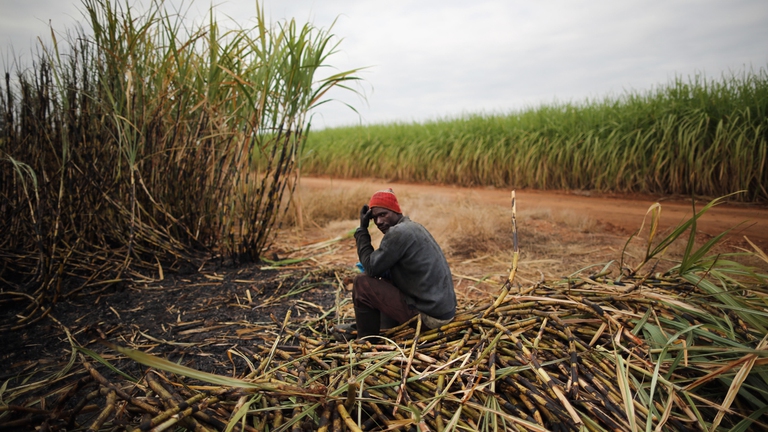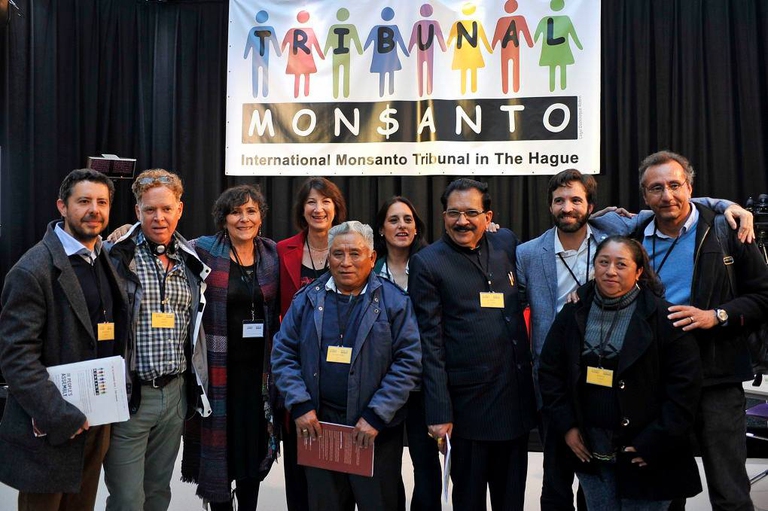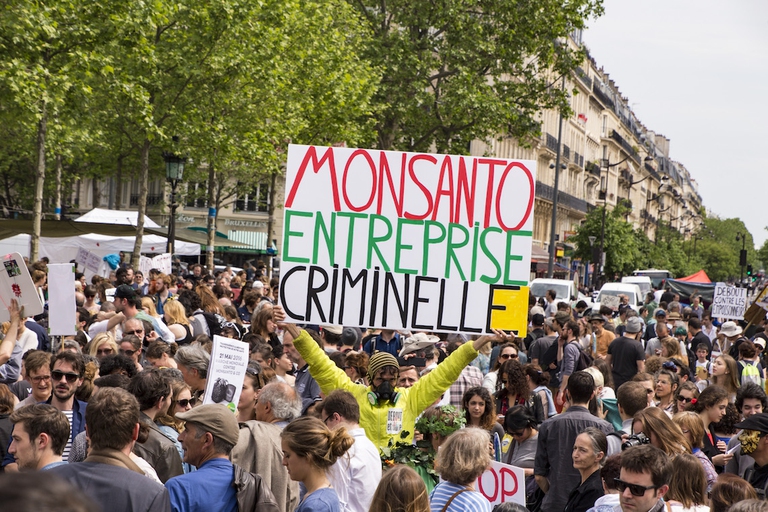
Factory farming conditions and antibiotic-resistant pathogens emerging as a result of them pose an existential threat to humans in the form of zoonotic diseases. Why it’s time to produce and consume food more thoughtfully.
Monsanto is now property of Bayer, and its name has ceased to exist. Agriculture is in the hands of a few large corporations now more than ever, with dire consequences for people and the environment.
The day that will change the fate of global agriculture and the agricultural chemicals sector has come after two years of negotiations and manoeuvres. The day in which Bayer becomes the sole shareholder of Monsanto. The official statement was made through a Bayer press release on the 4th of June, after receiving the green light from antitrust authorities in Europe and in the United States.
Read more: How agricultural chemicals are poisoning our world. And all the (false) myths about them
The operation is currently worth 63 billion dollars if Monsanto’s debt is taken into account. It’s the first time in history that a German company carries out such a large acquisition.
How is it possible that Bayer, the chemical and pharmaceutical company based in Barmen, Germany, was able to put up such a large sum? This is a legitimate question, especially for those who aren’t experts in the field. As stated in Bayer’s note, the day after the announcement the company secured a 57 billion dollar bridging loan that has already been partially refinanced. As reported by Reuters, on the 3rd of June Bayer announced a capital increase that included the emission of 74.6 million new shares in around two weeks. Each one costing 81 euros, for a grand total of 6 billion euros. The emission was made possible by a tight deal with 20 large banks, and it also includes a 22 per cent discount for current shareholders. Bayer added that it plans to emit senior bonds (money that a company must repay first if it goes out of business) for a total of 20 billion euros.
Bayer cashed in a few billion when it sold Covestro, a polymer and plastic producer, and from transfers towards Basf, a huge chemical company based in the German city of Ludwigshafen, imposed by antitrust authorities in order to avoid a monopoly on certain products.
The Monsanto chapter is only the largest of a radical transformation that has taken place in the last few years on the part of the chemical multinational based in Leverkusen. It has slowly but surely distanced itself from the polymer business and concentrated on two large activities: pharmaceutics and agriculture. The latter doubled in size after the Monsanto acquisition, becoming as large as the company’s pharma section.
According to Bayer’s own projections, a “Bayersanto” would have had approximately 115,000 employees and would have reached 45 billion euros of pro forma sales in 2017 (a financial calculation of current or projected figures), already taking into account the handing over of certain activities to Basf.
The European Commission, the United States Justice Department and other global antitrust authorities have declared that all that is required to ensure competition is that Bayer is forced to dismiss some of its activities. Nevertheless, many sources note that Basf, whose turnover was 64.5 billion euro in 2017, benefitted from this. “Increasing concentration in the agrochemical sector is exacerbating a dangerous tendency that sees a few multinationals take control of the future of agriculture and therefore, what we will be eating,” Federica Ferrerio, in charge of Greenpeace Italia‘s agriculture campaign, stated.
“Within a short period of time only three companies will be in control of nearly 60 per cent of the world’s seeds and nearly 70 per cent of the agrochemicals and pesticides,” with the approval of the Bayer-Monsanto mega-merger, writes Ruchi Shroff, Director of Navdanya International, in this editorial: figures that speak for themselves. Coldiretti, the principle organisation representing farmers in Italy, echoes this sentiment citing that: “One and a half billion farmers around the world are in the clutches of a few large multinational groups. These dictate the rules of the market and the sale of machinery necessary for cultivation and livestock farming, starting from seeds, but also in the acquisition and commercialisation of food and agricultural products. This elevated concentration threatens consumers’ freedom of choice as well as quality standards and food safety, in addition to food sovereignty and biodiversity in various countries”.
Read more: Industrial agriculture isn’t feeding the world, only agroecology can
“Bayer will remain the company name. Monsanto will no longer be a company name. The acquired products will retain their brand names and become part of the Bayer portfolio,” the official statement from the German multinational states. This is how a company that has been at the centre of year-long protests led by environmentalists, who even created a symbolic International Monsanto Tribunal threatening to sentence the company for ecocide, was just wiped away. A name that has been synonymous with GMOs, glyphosate and seed patents, along with all the consequences these have on farmers.
According to 24/7 Wall St., Monsanto is the 16th most hated US-based company in the world. The head of Bayer, Werner Baumann, didn’t even attempt to hide this fact, stating that Monsanto’s reputation “is a major challenge,” during last years’ shareholder meeting. A challenge that has clearly been faced by eliminating the uncomfortable name but not all the controversies that come with it.
“It’s understandable for Bayer to try and avoid being associated with Monsanto’s negative image after an acquisition that cost billions of euros. Nevertheless, this doesn’t change the issues that come with this acquisition,” Greenpeace’s Ferrario continues. “The name associated with dangerous market power that is controlled by a small number of large companies doesn’t make any difference to farmers, consumers or the environment who are affected by its negative impacts. It would be more important to radically change the commercial policies of the new mega-company rather than hiding the Monsanto name. It’s pretty hard to hope for such a change right now: what will probably happen is that the new seeds and pesticides world leader will show its rising power, continuing to disregard the development of sustainable solutions and have no interest in agriculture (which is less profitable), concentrating instead on seed patents, genetic engineering and pesticides, to recover the cost of the investment”.
Siamo anche su WhatsApp. Segui il canale ufficiale LifeGate per restare aggiornata, aggiornato sulle ultime notizie e sulle nostre attività.
![]()
Quest'opera è distribuita con Licenza Creative Commons Attribuzione - Non commerciale - Non opere derivate 4.0 Internazionale.
Factory farming conditions and antibiotic-resistant pathogens emerging as a result of them pose an existential threat to humans in the form of zoonotic diseases. Why it’s time to produce and consume food more thoughtfully.
The world of cinema recognises the link between food choices and the climate crisis by offering vegan menus for awards season events, including at the most important of them all: the Oscars.
Corporations are putting our lives and our environment at risk through a growing and improper influence over institutions, whose responsibility should be, instead, protecting people and the planet. The visible consequences have made it imperative to expose their devious tactics and their steadfast and corrupt lobbying, recently revealed in the Poison Papers (a compilation of over
Let’s look at the reasons behind the growth of veganism in India, as a small yet vocal section of the population turns towards this diet and lifestyle in the largest milk producing country in the world.
by Jeffrey Y. Campbell, Manager of the Forest and Farm Facility at FAO In the Ecuadorian Amazon, Kichwa farmers grow dozens of products on tiny parcels of land. Their lands hum with biodiversity, yielding nutritious foods that have sustained families for generations. Wandering among fruit and nut trees and crops, these indigenous agroforesters fill their baskets
Mint has many health benefits, but in food it’s often accompanied by artificial green colourings. Instead, Galatea has created a green mint ice cream in a completely natural way.
We’re talking about Galatea, a company that produces semi-finished products for artisanal ice creams using high quality ingredients, natural colouring, excluding thickeners and hydrogenated fats, respecting the environment and supporting the less fortunate.
The mad rush to fake food, like fake meat made with genetically-modified soy, ignores the importance of the diversity of our foods and culinary cultures. It’s a recipe to accelerate the destruction of the Planet and our health.
Like with all foods, the quality of an ice cream can be discerned by reading its label. An expert explains how to do this, and tells us how their company steers clear of chemicals, using only natural ingredients to produce an excellent and “free” ice cream.











